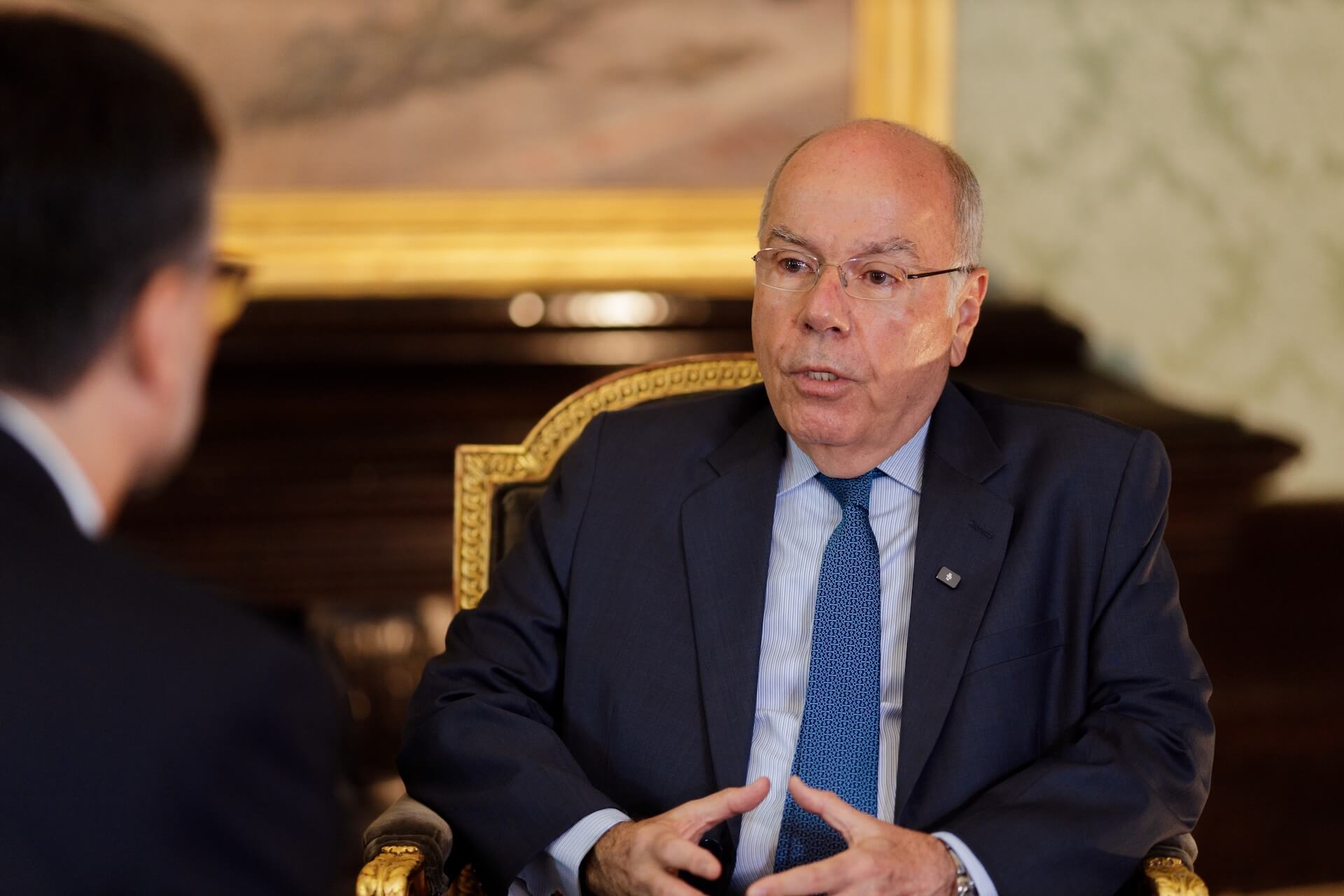“BRICS is an extremely important manifestation of multilateralism,” argues Brazilian Foreign Minister Mauro Vieira
In an exclusive interview with BRICS Brasil, Brasil’s Foreign Minister — who is in charge of coordinating the works of the group’s Foreign Affairs Ministers starting on Monday, April 28, at the Itamaraty Palace in Rio de Janeiro — commented on the importance of this moment for the both the country and the Global South.

By Franciéli Barcellos de Moraes / francieli.moraes@presidencia.gov.br
The BRICS Brasil Foreign Ministers Meeting began this Monday, April 28, in Rio de Janeiro. This is the first time they meet in a formal setting after the group’s expansion. Gathering the representations of the eleven countries as well as partner countries, the event is taking place at the Itamaraty Palace, a historical building located at the state of Rio de Janeiro’s, which for seven decades served as the home of Brazilian diplomacy.
“This meeting is extremely relevant for various aspects. It is the first plenary meeting that gathers all member countries as well as partner countries. This alone raises the world’s interest. Initially, there were five countries and now, with the partner countries, there are 20. BRICS countries together hold almost half of the world’s population and 40% of the Gross Domestic Product (GDP), which in itself highlights the importance of the group,” stated Brasil’s Foreign Minister, Ambassador Mauro Vieira about the role of this second meeting in the Global South cooperation agenda.
“BRICS is not against anybody, not any other bloc, not any other country. BRICS is in favor of uniting the countries and promoting the development of the so-called Global South"
“We hope to deliver concrete results of these very important meetings to the upcoming presidency, which will be assumed by India,” added the minister during an exclusive interview with BRICS Brasil.
Recalling the success of Brasil’s G20 Presidency last year, in which the national coordination enabled historical consensus among the world’s main economies on a series of issues, such as committing to tax large fortunes, combating hunger and poverty, and climate action, the minister emphasized the Brazilian diplomacy’s vocation to strengthen multilateralism.
“BRICS is an extremely important manifestation of multilateralism, and multilateralism is one of Brasil’s constitutional precepts guiding our foreign relations. Therefore, Brasil cannot fail to strengthen multilateralism and fight to make it increasingly stronger, especially at a time like the one we are living through, when multilateralism has been under attack from all sides," the ambassador stated.
Vieira added that the defense of multilateralism is directly linked to the preservation of organizations such as the United Nations (UN) and the World Trade Organization (WTO), even while acknowledging the need for reforms in global governance and the international financial architecture.
In his role as Brasil’s highest diplomatic authority and coordinator of this week’s event, Vieira explained the intention of qualifying trade agreements among the countries using local currencies, which is different from the possibility of establishing a local currency.
“BRICS is not against anybody, not any other bloc, not any other country. BRICS is in favor of uniting the countries and promoting the development of the so-called Global South. One of the platforms it instituting trade using local currencies, [...] there is no plan to replace or create new currencies; what exists is an interest in conducting transactions at lower costs," Vieira emphasized, noting, for example, that this model is already a reality within the framework of ALADI (Latin American Integration Association).
On previous occasions when this issue was raised, both Brazil’s BRICS Sherpa, Ambassador Mauricio Lyrio, and the Chief Advisor to the President of the Republic of Brasil, Ambassador Celso Amorim, emphasized that the group does not adopt an anti-Western stance but is, rather, another player on the international stage, reinforcing multilateralism.